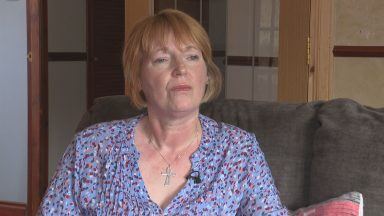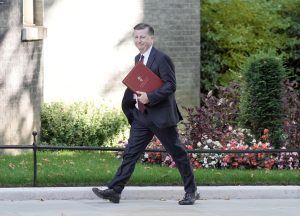Tenants have called for an end to profiteering in the private rented sector, with many facing financial hardship amid the cost of living crisis.
Research by the Joseph Rowntree Foundation (JRF) found that a “significant proportion” of those renting privately are doing so because it is their only option.
Homeownership also remains unaffordable for many, with social housing difficult to access, researchers indicate.
The study conducted by the charity warned that high numbers of renters are struggling financially, with some having to cut back on essentials to pay their rent.
Among those surveyed, renters described feeling “trapped” in the sector and unable to move on.
Dr Tom Simcock, project lead for the research team, explained that housing situation is having a negative impact on the physical and mental health of some tenants living in Scotland.
“The research we published today reveals that not all renters have a positive experience – some face poor quality housing and financial distress and those on a low income are particularly exposed,” he said.
“Some renters told us that their current housing situation negatively affects their physical and mental health.
“Our research shows that private sector tenants have several over-arching priorities for action.
“They want the Scottish Government to prioritise taking urgent action to improve rental affordability and fairness, to tackle poor housing quality – especially around damp and energy efficiency – make housing providers more accountable and increase access to good quality homes of all tenures.”
Researchers worked with low-income renters to develop 20 recommendations to help address the challenges outlined.
It includes calling for action to make private renting more affordable, to improve the quality of housing available, and to increase the accountability and professionalism of housing providers.
Amongst other findings in the report, many renters were also found to be unclear on what rights they have, while some described feeling “intimidated and overwhelmed” at the prospect of taking action further.
Simcock stated that the charity will work with renters, stakeholders and the Scottish Government to help take the proposals forward.
“The tenants we spoke to wanted greater fairness in the housing market, and while they recognised landlords had to make a reasonable profit, they did want to see an end to what they saw as profiteering – very high rents and little meaningful choice,” he said.
“Equally, they were worried about the impact future reforms might have and how landlords may respond.”
He added: “The co-designed solutions tenants developed in this project, offer a good starting point for the Government as it seeks to develop further policy around a fairer deal for tenants, alongside other stakeholders.
“We look forward to working with renters, stakeholders and the Scottish Government to take these ideas forward for a better rented sector.”
Tenants’ rights minister Patrick Harvie acknowledged that some renters already faced negative experiences before the impact of the cost of living crisis.
“In our New Deal for Tenants consultation over the last year we recognised that private tenants’ experience of renting varies hugely,” he said.
“Some tenants have a very positive experience with good quality housing provided by responsible landlords.
“But equally, there are other tenants, especially on lower incomes where the outlook is much less positive, and that was before the current cost crisis.”
Harvie explained that emergency legislation will be published by the Scottish Government “very soon”.
“That is why the New Deal sets out a range of proposals to raise quality and standards in renting – aiming to make sure all tenants enjoy a good experience and recognising the good work of those landlords who provide it,” he continued.
“It is also why, in the current cost crisis, we have committed to protecting tenants from rising rents and losing their homes over these next few months.
“Our emergency legislation, which we aim to publish very soon, puts Scotland far ahead of anywhere in the UK responding to the hardship which many tenants face.”
Follow STV News on WhatsApp
Scan the QR code on your mobile device for all the latest news from around the country


 iStock
iStock























